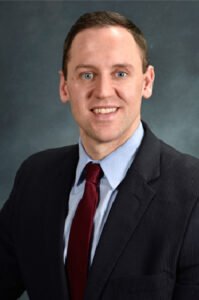Elemental Management Group’s program is bringing more workers into long-term care
The shortage of certified nurse assistants has challenged nearly all long-term care facilities since even before the pandemic.
These frontline workers provide essential services such as checking vital signs, helping move residents, assisting with grooming and other personal care and supporting nutrition.
Elemental Management Group, which operates The Gardens Assisted Living Community and Morningstar Residential Care Center in Oswego and other senior facilities in Upstate New York, has developed a 75-hour hybrid nurse aide training program designed to help expedite CNA training, enabling students to complete the program in less than three weeks instead of 164 hours across four to six weeks.
Elemental’s program has been available for nearly a year and has introduced hundreds of new CNAs into the health care system who otherwise would have been unlikely to have completed a standard CNA program.
“It’s our dream-come-true that we’re the first to get this up and going,” said Judy Harding-Staelens, registered nurse and licensed nursing home administrator and regional director of operations for Elemental.
Elemental manages long-term care and assisted living facilities in locations throughout New York. Five of Elemental’s facilities operate the program.
“The hybrid program has been exciting as we understand the generation seeking work now wants faster training and are more tech savvy,” Harding-Staelens said.
Students may sign up and complete the classes on a phone or laptop and schedule in-person times for completing the more clinical, hands-on aspects of the training. Instructors can monitor students’ progress and are always available for questions and feedback via email or in real time via chat. The program’s flexibility makes it accessible to people who are already working and those who have families and other obligations on their time.

“It helps focus on the social economic factors that our students face,” said Peg Reith, registered nurse, regional nurse educator and CNA educator for Elemental. “There are young women joining in the workforce or middle-aged women. They can work at home while juggling their families, whether as caregivers or parents. This program has been very successful for them.”
It’s not that students of typical CNA programs lack the time to complete them. The big problem has been that the standard class times often conflict with when students have available time. Reith said that this timing and the length of the course caused many to drop out. Now Elemental runs a course every two weeks and can more quickly introduce CNAs into the workforce.
The hybrid CNA program can accommodate up to 20 students, providing sufficient instructors are available for clinical time. Some industrious students complete the program in a week, but most take about three if they work at it for four to six hours on weekdays. Students unable to finish in the prescribed three weeks can jump into the next session without having to redo material previously covered.
Training CNAs for other organization
In addition to training its own CNAs, Elemental can offer outsourced training for other organizations, which offers Elemental another revenue stream beyond providing care.
Elemental has two packages. One provides training for educators who want to teach the hybrid CNA classes at their own facility. The other package completely handles the hybrid CNA classes as a third-party entity.

“We have a vested interest in this,” said Ryan Gilbartin, chief operating officer and licensed nursing home administrator at Elemental, which provides administrative support services to five nursing homes and two assisted living facilities.
Harding-Staelens said that the hybrid CNA program has enabled Elemental and other organizations to easily cross-train staff such as housekeeping and laundry personnel so that they can also perform hands-on duties, such as feeding residents.
“It puts more hands on your residents as they can get more one-on-one time,” Harding-Staelens said. “It helps for the CMS Star Rating for number of people per resident. It goes up as to how many direct staff you have if they’re functioning as a CNA.”
Developed by the federal government, the CMS Five-Star Quality Rating System helps consumers compare long-term care options more easily. Legally, staff trained only as housekeeping or laundry workers are not permitted to provide any personal care to residents.
Reith said that occasionally, some people who are not familiar with the Moodle platform — or technology in general — don’t readily embrace the program. However, with a little coaching, she has not encountered any insurmountable problems. The program was written on a six-grade reading level to make it more accessible to students.
“I think it’s opened a door for us,” Harding-Staelens said. “Our goal is to get approval with the Department of Education to keep on going. The opportunities are endless.”
The next goal is launching a program to teach more types of skilled programs in a hybrid, accelerated model. In addition to helping alleviate the CNA staffing crisis, Elemental’s program provides an additional revenue stream to the company, which helps in light of stagnant Medicaid reimbursement for the past 15 years in the face of soaring inflation.
The initial start-up cost to train a facility’s educator is $7,500 and for each following month, $1,500. For organizations that want to outsource the entire program, it’s $1,200 per student.
“It’s very exciting,” Harding-Staelens said. “It’s a huge collaboration. I get to see a lot of families affected as they can gain steady employment. There’s joy in the life-changing things we’ve done for them.”

